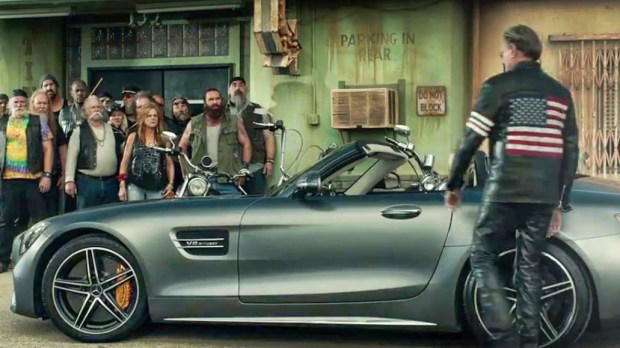Lenten Campaign 2025
This content is free of charge, as are all our articles.
Support us with a donation that is tax-deductible and enable us to continue to reach millions of readers.
I like what one Benedictine College professor says about advertising: The goal of marketing is to reduce infinite desires to desires small enough to pay for.
We long for beauty, love, friendship, wisdom, says Salvatore Snaiderbaur. Corporations want our money. So they tease our desire for the former in order to get the latter.
A sizeable percentage of last night’s audience tuned in not to see football, but to see ads. So let’s reverse engineer a little and try to see what desires those amazing commercials were appealing to.
“
” by Intel knows that we all want to be epic. We want to be great. We feel like our life has a gigantic meaning from its small acts to its large ones —and so Intel offers its new 360-imaging technology, which can make the ordinary actions of our day epic. Yes — with this product you truly are the Tom Brady of stretching, tooth-brushing and pancake flipping that you imagine yourself to be.But that epic greatness only exists on screen. Is that enough?
works very hard to say, “Oh, yes. That’s enough.” It features fathers and sons, friend groups and couples all bonding with each other not by actual human interaction — but by shared interaction with a screen. And they sure seem to find it very fulfilling.Fulfilling yourself via a screen was a frequent theme last night.
“
” by Squarespace is an exercise in “heavy meta” as the actor seeks his identity online — and we watch from his laptop camera’s point of view. You, too, can become the real you … with Squarespace.But who is the real you? Whoever you decide to be, says
. What do we want to be?“
,” says T-Mobile. We want unlimited awesomeness —unlimited moves — and our desire for it has driven us from a cave-dwelling Rob Gronkowski to a bespectacled Justin Bieber to the number on your screen.Of course, this desire for the unlimited is only really fulfilled in one place: heaven. Pope Benedict has called hope “a nostalgia for heaven” (à la C.S. Lewis) and many Super Bowl ads tease our desire for the infinite via nostalgia.
“
” by Mercedes Benz (and directed by the Coen Brothers) features bikers longing for the “Born to be Wild” life that once was theirs. They can go back, they learn — in a Mercedes.Some of these “appeals to nostalgia” are extremely effective.
“
” by Anheuser-Busch tells the story of a new German immigrant named Busch struggling through adversity and meeting an immigrant named Anheuser. But more importantly it tells the story each of us want to be in, a story of hard work and God’s Providence paying off.Two car companies pressed nostalgia buttons last night: “
” by Ford evoked each of our personal stories via everyman vignettes and “” by Honda connected our stories to celebrities’ via that great social leveler, the high-school yearbook.These appeals to nostalgia touch a deep chord in us.
“Nostalgia and longing impel [man] to pursue the quest” for perfection, said Benedict. “Beauty prevents him from being content with just daily life. It causes him to suffer.”
Marketers know we long to salve that suffering — to soothe that “old ache.” The problem? Their products never do it. Not even close.
Last night, “
” by FIJI Water promised to bottle nature’s beauty for us while “” by LIFEWTR promised to bottle art. Alas, neither is possible.So — are all ads corrupt? A glamour-of-evil bait-and-switch that teases our desire for the infinite to get access to our all-too-finite bank accounts?
Maybe. But my favorite commercial last night will deliver, if used according to instructions.
“
” by Mr. Clean starts out creepily, I grant. But its central lesson — that service and sacrifice make husbands irresistible — is true. Money can’t buy love, but it can buy toilet cleaner. And sometimes toilet cleaner is necessary for love.And that — giving and receiving love — is the only way to satisfy our desire for the infinite.

